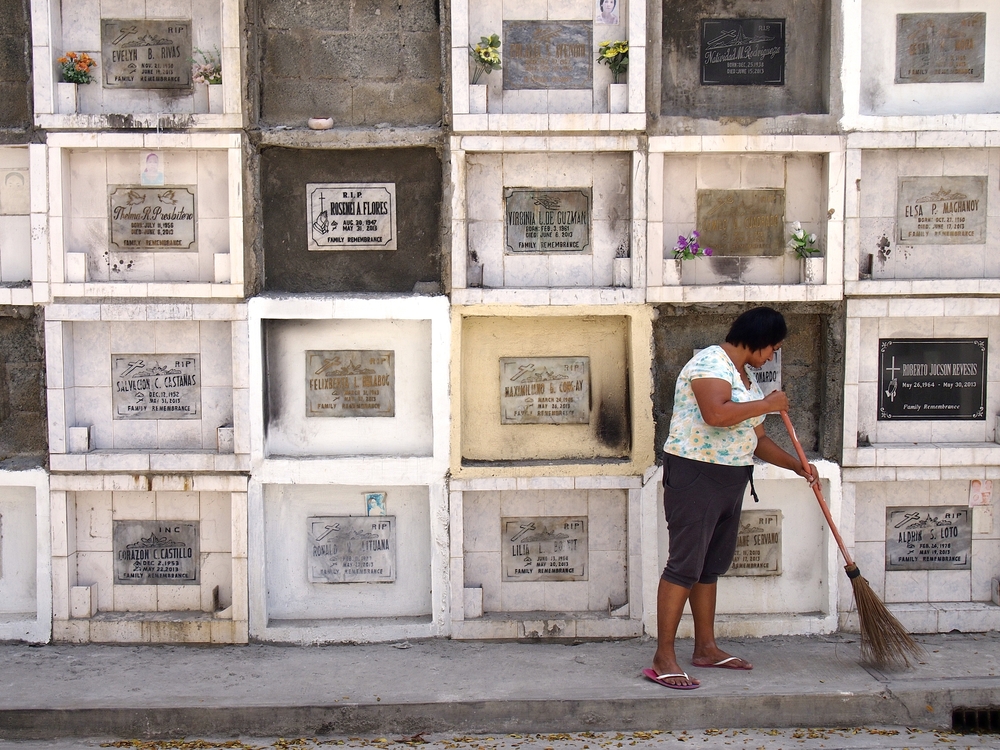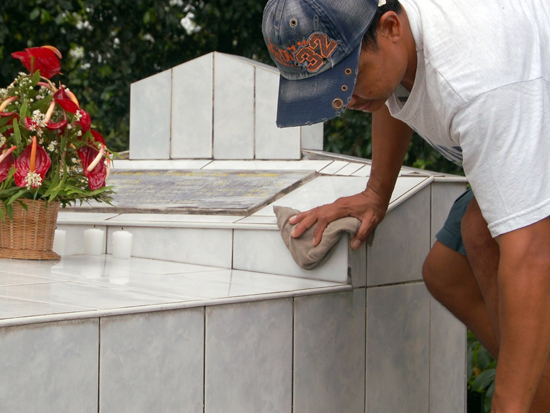Life Stages: Death
Traditions
Philippine culture views death or natay as a transition from one state of being to another. It is considered not as the end but as the beginning of a new afterlife.
Filipino wakes tend to be boisterous affairs accompanied by eating, drinking, music, and playing cards. Mourners typically maintain a 24-hour vigil, during which time even passing strangers are invited to participate in the wake.
Friends and relatives attend the house of the deceased, and the body is normally kept there for some time to allow distantly located relatives to come. When it is time for the burial, the mourners follow the coffin in a procession to the cemetery.
After the burial, friends and relatives attend a feast in homage to the deceased. Mourners wear a black dress or a black pin for six weeks after the death and get together at the death anniversary to pay their respects. Formal mourning ends after this point.
The Afterlife
Filipinos commemorate Fiesta ti Natay (All Saints’ Day) on November 1 every year to honor the spirits of the dead. Throughout the Philippines, people believe that ancestral spirits revisit their living descendants on this day. Filipinos typically go to the church, have an anniversary Mass, visit cemeteries, offer food, place flowers, keep a vigil at the gravesite, and pray in memory of their loved ones. They then light a candle at the graveside of each deceased relative and return to their homes before nightfall.
Filipinos also believe that the kararua (soul) of every dead person continues to lead a “spiritual” life that facilitates eternal rest or suffering, based upon the individual’s suerte (fate) or deeds during his or her life.
Copyright © 1993—2025 World Trade Press. All rights reserved.

 Philippines
Philippines 
